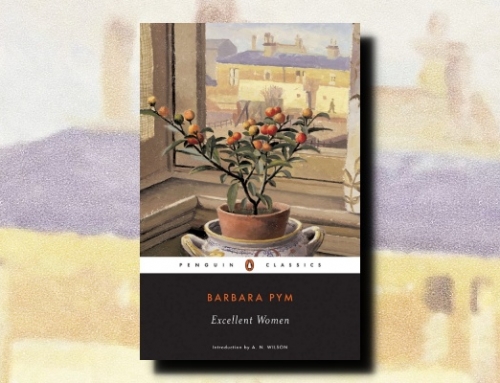
“At the Caffè Daria”
by William Trevor
from Last Stories
 Of the ten stories in William Trevor’s Last Stories, two had never before been published, including the subject of this post, “At the Caffè Daria” (the other is the next story in the collection, “Taking Mr Ravenswood”). I know none of the backstory, so I don’t know if these were ever rejected or if they were simply around when Trevor passed away in November 2016 and then not picked up by some place like The New Yorker. One has to wonder: are these stories any good? I still haven’t read “Taking Mr Ravenswood,” but I can say that “At the Caffè Daria” is very good, perhaps great (I need to spend more time with it), if not among Trevor’s best (that’s a high standard, so no real slight on the story there).
Of the ten stories in William Trevor’s Last Stories, two had never before been published, including the subject of this post, “At the Caffè Daria” (the other is the next story in the collection, “Taking Mr Ravenswood”). I know none of the backstory, so I don’t know if these were ever rejected or if they were simply around when Trevor passed away in November 2016 and then not picked up by some place like The New Yorker. One has to wonder: are these stories any good? I still haven’t read “Taking Mr Ravenswood,” but I can say that “At the Caffè Daria” is very good, perhaps great (I need to spend more time with it), if not among Trevor’s best (that’s a high standard, so no real slight on the story there).
The story’s two main characters are Anita and Claire, but Trevor begins it by introducing us to London’s Caffè Daria itself, even giving us a nice backstory about Andrea Cavalli, the man who built it after he left Italy for good in 1949, naming it after his wife who left him for another man, a poet he never met but whom, he thinks, “no woman could be blamed for loving.”
The story then shifts to Anita. Even people who haven’t seen Anita for years know where she can probably be found since she’s been frequenting the cafe since her adolescence. Now, as a middle-aged woman, she still comes and has her regular order at her regular table while she evaluates manuscripts.
One of the childhood friends who knows where to find Anita is Claire. They were very close at one time and even shared their fascination with the Caffè Daria:
They danced together with the Fireflies and it was then that the Caffè Daria became their most special place. Anita told the tale of Andrea Cavalli’s consuming love, and both so admired his generosity that between them they transformed him into a figure of heroic awe. They touched the things he’d touched and called themselves ridiculous for doing so, and yet they did it.
But, one day, when Claire walks into the Caffè Daria and approaches Anita, we know that something has changed. “Why have you come?” Anita asks with no other greeting.
Over the next few paragraphs, Trevor starts to fill in the blanks, revealing how this friendship turned into this:
How patronizing, Anita reflects, the smile that isn’t there today once was, how treacherous the sky-blue eyes. How much she detested then the Scandinavian beauty and wished the perfect profile maimed, how often made the graceful walk a dragging slouch.
In a few words, Trevor fills in not just the story but also a sense of time, time that gets filled with a life and its feelings. Anita and Claire are both in their middle age now, and their pasts are complicated. The question is how does that past affect their potential futures?
Much the way we’d think, it turns out, when we learn a bit more about them. Claire has come to Anita out of the blue to tell her that Gervaise is dead. At the time, we don’t know who Gervaise is, and I think it’s such an effective way to tell this story. As we come to know the details of their pasts, we have this fact in mind. What do we learn? That Gervaise was married to Anita, and that years ago he left her for Claire. Again, how we learn this is interesting; I’m still trying to understand why it works so well. We learn little by little, but our first real revelation is when Anita asks Claire what will happen to the house, only she does it tersely: “The house?” Trevor expounds:
They both have lived in it. Anita made it as she wanted it to be, Claire moved the furniture about and painted doors and windowsills a colour she preferred.
This is all at the beginning of the story. The remainder is a lovely look at the subsequent months as Claire mourns and Anita, in her way, stubbornly resists any tugs she has to this past that was once hers.
I really enjoyed the story. At the same time, I’m a bit perplexed about the relationship between some of the elements, in particular between the backstory of Andrea Cavalli and the Caffè Daria and the story of Anita and Claire. I’m trying to articulate a connection between Andrea’s lasting devotion to a wife who left him and Anita and Claire’s relationship with their common husband, Gervaise, who himself was anything but devoted and faithful.
I’d love to hear your thoughts on this. William Trevor doesn’t package things this way without purpose. While it’s easy to read them as separate, and to just enjoy the story about Anita and Claire, Trevor’s stories are often about one thing with many connecting elements told throughout the story, and I’m not quite getting it here.
Still, despite feeling tantalized by some insights I’m not yet able to grasp, I loved drifting through another lonely world, where time, both the present and the past, is palpable.








Trevor, I liked this story a lot as well. I agree with you that there is a real art to how the relationship of the characters and their history is revealed. I must admit, however, that when I read the last passage you quoted (“They both have lived in it. Anita made it as she wanted it to be, Claire moved the furniture about and painted doors and windowsills a colour she preferred.”) I was very much reminded of The Piano Tuner’s Wives. The story here is more about the relationship of the two women, while there it was more the relationship between the man and the second woman, so it is not really a repeat, but it does at least touch on some terrain he has been on before.
.
About the story of the cafe and it’s original owner, I thought that this was quite clever. It seems to suggest, at first, that the parallel is to how Anita might feel about Gervaise. Both Anita and Andrea are left by the people they love, so perhaps her continued resentment towards Claire is in part because she still loves him despite how he has treated her, much like Gervaise. But the final sentence reveals the truth, that both Anita and Claire remember a time “before love came, when friendship was the better thing.” The real parallel, then, turns out to be not to Anita’s relationship with Gervaise, but to her prior friendship with Claire. Anita sees faces for a moment she thinks are Claire returned only to a moment later see it’s not her. The relationship she pines for is her friendship with Claire.
David, thanks again for commenting and sharing some of this experience with me. I have been toting the book around since I got it, so I have my thoughts on the last stories coming in the next few weeks, and I already want to go back through the whole thing. Somehow, Trevor just makes these place and people — even though he keeps a lot of it in the shadows — feel like real people I should be be concerned about and check in on.
I don’t know if you are familiar with the music of Ben Folds, but I was reminded of this song, “Fred Jones, Pt. 2”, while reading William Trevor’s stories. See what you think.